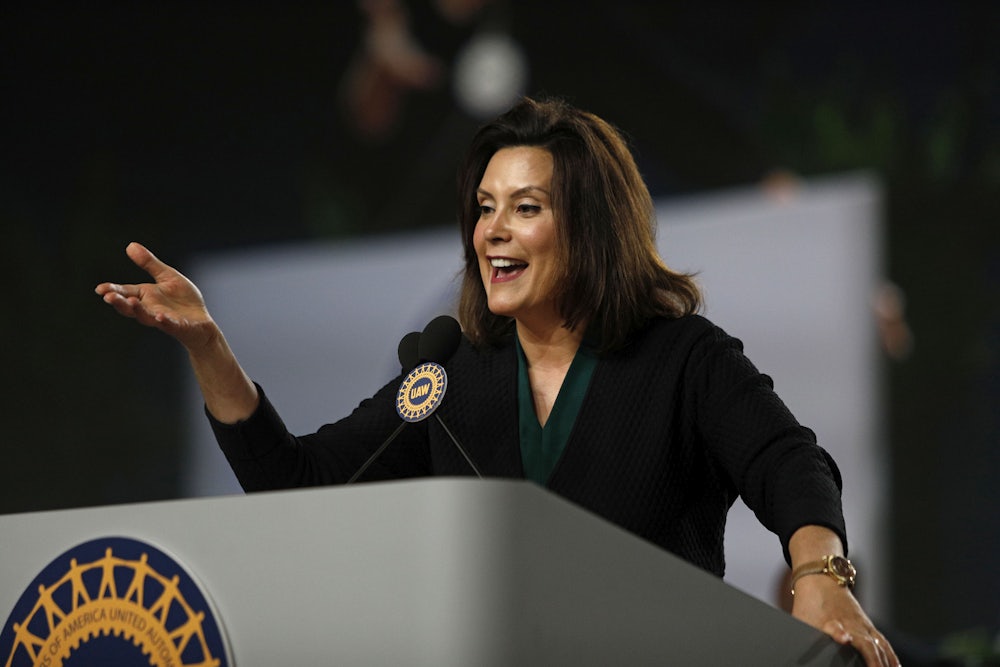Whitmer, a long-time lawmaker, won a handy victory to be the Democratic nominee in Michigan, getting 50.3 percent of the vote. This put her far ahead physician Abdul El-Sayed (33.3 percent) and businessman Shri Thanedar (16.3 percent). Whitmer’s triumph showed the robustness of the old school Democratic Party in the face of insurgent challenges. El-Sayed ran as a progressive candidate and got a ringing endorsement from Bernie Sanders. Thanedar’s self-financed campaign also employed progressive themes.
Whitmer’s great advantage was she had the backing of the party’s infrastructure, getting the endorsement of almost every Democratic official in Michigan and the strong support of labor unions. Unlike her outsider rivals, Whitmer was a party candidate who emphasized her legislative track record, notably her success in getting Medicaid expansion.
Whitmer was decidedly less progressive than her rivals. Unlike them, she opposed state-level single-payer health insurance and opposed doing away with Charter Schools (which she did want to regulate more). But, as the Huffington Post notes, “Whitmer also supports a host of traditional progressive priorities. She wants to raise the minimum wage to $15 an hour, provide state residents two years of debt-free college or trade school and roll back the state’s right-to-work law.”
Her victory strengthens the general trend of 2018 being a “year of the women” for Democrats. Indeed, as journalist Amy Sullivan noted, Whitmer will be heading a team of impressive female candidates vying for high office in Michigan.
Now that Gretchen Whitmer has won the primary for #MIGOV, Michigan Democrats have a trio of powerhouse women running for the state's top positions, including Jocelyn Benson for Sec of State & AG candidate Dana Nessel, who you might remember from this ad:https://t.co/8ztZ4OliN7
— Amy Sullivan (@sullivanamy) August 8, 2018
